Consequences of Vatican II
 |
 |
 |
 |
 |
 |
 |
Kasper’s Theory: A Perversion
of Catholic Doctrine
On February 22, 2014, in a Consistory held at the Vatican, Pope Francis invited Cardinal Walter Kasper to give the opening talk. In his talk the Cardinal presented a new doctrine on marriage, which we will call here “Kasper’s theory.”
The essence of this theory is a rationale for permitting divorced and remarried individuals to receive Holy Communion. In Kasper's two hour address to the Consistory on the family, he devoted the last section to “the problem of the divorced and remarried.” (See full text in Italian and excerpts in English)
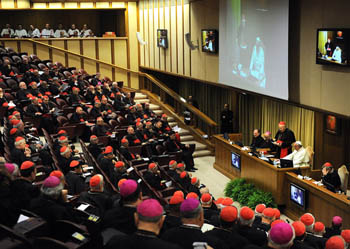 Kasper basically said: After Vatican II we accepted “developments” on the question of ecumenism or religious freedom “without violating the binding dogmatic tradition.” Therefore, we can do something similar with Communion for divorced and re-married people. That is, let us give Communion to them as exceptions without changing the doctrine on the Eucharist.
Kasper basically said: After Vatican II we accepted “developments” on the question of ecumenism or religious freedom “without violating the binding dogmatic tradition.” Therefore, we can do something similar with Communion for divorced and re-married people. That is, let us give Communion to them as exceptions without changing the doctrine on the Eucharist.
He affirmed that it would be a case of choosing the lesser evil: that is, to avoid “the greater evil of offering no help to the divorced and remarried, cutting them and most likely their children, off from the Sacraments“ the Church could "tolerate that which is impossible to accept" - a second union.
This proposal is nothing but the official adoption of hypocrisy. It is tantamount to saying that Church doctrine on Communion is a museum piece and that today - in practice - the Church “blesses” irregular situations of divorced and re-married people. His “theory” is a source of public scandal, leading people to adopt this sinful state.
Dire consequences of Kasper’s theory
There has been much discussion about this theory; what is absent from it has been any consideration of how horrendously insulting are its consequences to both God the Father and His Son, Jesus Christ.
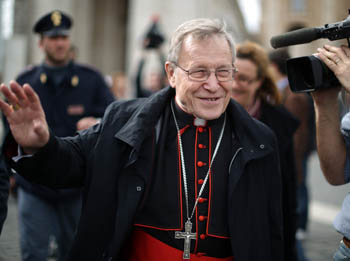 The discussion has centered primarily on how Catholic Morals may be “interpreted” to satisfy the desires of man, while absolutely no consideration has been given to the far more important issue of how to induce man to better obey God’s laws in order to save his eternal soul, which is one of the most important reasons for the existence of the Church. Kasper’s theory seems to be “Cafeteria Catholicism” practiced at the highest levels in the conciliar Church.
The discussion has centered primarily on how Catholic Morals may be “interpreted” to satisfy the desires of man, while absolutely no consideration has been given to the far more important issue of how to induce man to better obey God’s laws in order to save his eternal soul, which is one of the most important reasons for the existence of the Church. Kasper’s theory seems to be “Cafeteria Catholicism” practiced at the highest levels in the conciliar Church.
It is a de fide teaching of the Catholic Faith that the worthy reception of Holy Communion requires the recipient to be in the state of grace, that is, free from mortal sin. Now, Jesus himself, in answer to the Pharisees tempting question: “Is it lawful for a man to put away his wife for every cause?’ said “What therefore God hath joined together, let no man put asunder.”
Our Lord also added: “And I say to you that whosoever shall put away his wife, except it be for fornication, and shall marry another, committeth adultery, and he that shall marry her that is put away committeth adultery” (Mt 19: 6, 9) .
Hence, the individual who divorces his legitimate spouse and remarries commits a mortal sin, and if he, while remarried, also receives Holy Communion, he commits a second mortal sin.
Christ instituted the Sacrament of the Holy Eucharist so that, by the proper reception of it, the person receives grace to better enable the salvation of his soul. However, Kasper’s theory urges the reception of the Holy Eucharist in a manner that actually entails sin for the individual and scandal for all Catholics.
Furthermore, one who receives Holy Communion in such a manner is openly insulting both God and His Son, thus adding to the gravity of his sin. The consequence of Kasper’s theory is, therefore, a mockery of both Jesus and God the Father, as well as a complete negation of the very purpose of the Sacrament, which is to spiritually unite the faithful with Christ.
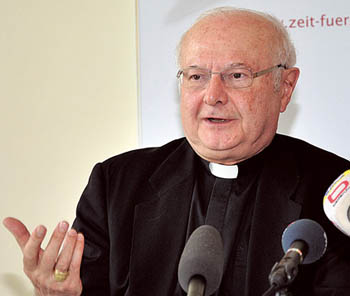 Catholic teaching has always held that God in His mercy forgives the sins of those who properly confess them, that is, demonstrate remorse for the sins, make reparation for them and fervently promise not to commit them again. Now, the presupposition of Kasper’s theory is the false notion that God’s mercy is so great that, despite the fact that the recipient has not repented of his sin of adultery and intends to continue to commit it, God permits him to receive the Eucharist. This is a clear perversion of God’s mercy.
Catholic teaching has always held that God in His mercy forgives the sins of those who properly confess them, that is, demonstrate remorse for the sins, make reparation for them and fervently promise not to commit them again. Now, the presupposition of Kasper’s theory is the false notion that God’s mercy is so great that, despite the fact that the recipient has not repented of his sin of adultery and intends to continue to commit it, God permits him to receive the Eucharist. This is a clear perversion of God’s mercy.
This theory is a result of adaptation of the Church to the modern world by making the Church “more caring, loving, charitable and merciful” toward its errors, in accordance with the deliberations of Vatican Council II.
However, there is absolutely nothing caring, loving, charitable, or merciful about this theory because it encourages Catholics to live in contradiction to God’s Commandments and, thus, truly endangers the eternal salvation of their souls. Further, by adopting this theory, the conciliar Church impels temporal society to head toward its own destruction.
Asking Card. Kasper to deliver the opening speech at that consistory, the Pope implicitly gave stature and importance to his new moral theory. Francis further increased its status by commenting that he was pleasantly impressed by Kasper's deep and serene theological thought.
In fact, the Pope was so pleased with Kasper’s “theology” that, in his opening words on the second day of the Consistory, he offered the following words of encouragement to the Cardinal:
"Yesterday, before falling asleep, though not to fall asleep, I read, or re-read, Card. Kasper’s remarks. I would like to thank him, because I found a deep theology, and serene thoughts in theology. It is nice to read serene theology. ... It did me good and I had an idea, and excuse me if I embarrass Your Eminence, but the idea is that this is called doing theology while kneeling. Thank you. Thank you.”
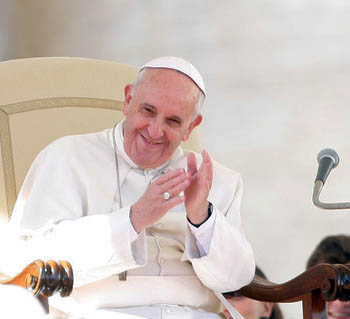 Just as Pope Francis’ comment: “Who am I to judge?” concerning the sin of sodomy induced many, including members of the clergy and the hierarchy, to dismiss the endangering effects of homosexual acts for the salvation of souls, so also these praises of Kasper’s theory by the Pope implicitly encouraged the mortal sin of adultery and the profanation of the Holy Eucharist.
Just as Pope Francis’ comment: “Who am I to judge?” concerning the sin of sodomy induced many, including members of the clergy and the hierarchy, to dismiss the endangering effects of homosexual acts for the salvation of souls, so also these praises of Kasper’s theory by the Pope implicitly encouraged the mortal sin of adultery and the profanation of the Holy Eucharist.
Several years prior to Card. Kasper’s speech, then Fr. Ratzinger, in a 1972 essay On the Question of the Indissolubility of Marriage discussed the possibility of adulterers receiving the Sacrament of Eucharist under certain and very limited circumstances. Thus, we see that the substance of Kasper’s theory has been planned at the highest levels in the conciliar Church for many years. It is clear that this heretical notion is pervasive in the conciliar Church.
In conclusion, Christ introduced the Sacraments to give recipients God’s grace to better enable the salvation of their souls. Kasper's theory, however, disregards the purpose of the Holy Eucharist. Consequently, this theory is completely opposed to the reason Jesus established His Church: to give honor and glory to God and the salvation of souls. Therefore, it is a total perversion of Catholic doctrine.

The essence of this theory is a rationale for permitting divorced and remarried individuals to receive Holy Communion. In Kasper's two hour address to the Consistory on the family, he devoted the last section to “the problem of the divorced and remarried.” (See full text in Italian and excerpts in English)

Card. Kasper's opening address at the Consistory on the family set a revolutionary tone
He affirmed that it would be a case of choosing the lesser evil: that is, to avoid “the greater evil of offering no help to the divorced and remarried, cutting them and most likely their children, off from the Sacraments“ the Church could "tolerate that which is impossible to accept" - a second union.
This proposal is nothing but the official adoption of hypocrisy. It is tantamount to saying that Church doctrine on Communion is a museum piece and that today - in practice - the Church “blesses” irregular situations of divorced and re-married people. His “theory” is a source of public scandal, leading people to adopt this sinful state.
Dire consequences of Kasper’s theory
There has been much discussion about this theory; what is absent from it has been any consideration of how horrendously insulting are its consequences to both God the Father and His Son, Jesus Christ.

Kasper enters the limelight with his 'theory' to allow divorced & remarried Catholics receive Communion
It is a de fide teaching of the Catholic Faith that the worthy reception of Holy Communion requires the recipient to be in the state of grace, that is, free from mortal sin. Now, Jesus himself, in answer to the Pharisees tempting question: “Is it lawful for a man to put away his wife for every cause?’ said “What therefore God hath joined together, let no man put asunder.”
Our Lord also added: “And I say to you that whosoever shall put away his wife, except it be for fornication, and shall marry another, committeth adultery, and he that shall marry her that is put away committeth adultery” (Mt 19: 6, 9) .
Hence, the individual who divorces his legitimate spouse and remarries commits a mortal sin, and if he, while remarried, also receives Holy Communion, he commits a second mortal sin.
Christ instituted the Sacrament of the Holy Eucharist so that, by the proper reception of it, the person receives grace to better enable the salvation of his soul. However, Kasper’s theory urges the reception of the Holy Eucharist in a manner that actually entails sin for the individual and scandal for all Catholics.
Furthermore, one who receives Holy Communion in such a manner is openly insulting both God and His Son, thus adding to the gravity of his sin. The consequence of Kasper’s theory is, therefore, a mockery of both Jesus and God the Father, as well as a complete negation of the very purpose of the Sacrament, which is to spiritually unite the faithful with Christ.

German Archbishop Zollitsch has openly defended the Communion plan for divorced Catholics
This theory is a result of adaptation of the Church to the modern world by making the Church “more caring, loving, charitable and merciful” toward its errors, in accordance with the deliberations of Vatican Council II.
However, there is absolutely nothing caring, loving, charitable, or merciful about this theory because it encourages Catholics to live in contradiction to God’s Commandments and, thus, truly endangers the eternal salvation of their souls. Further, by adopting this theory, the conciliar Church impels temporal society to head toward its own destruction.
Asking Card. Kasper to deliver the opening speech at that consistory, the Pope implicitly gave stature and importance to his new moral theory. Francis further increased its status by commenting that he was pleasantly impressed by Kasper's deep and serene theological thought.
In fact, the Pope was so pleased with Kasper’s “theology” that, in his opening words on the second day of the Consistory, he offered the following words of encouragement to the Cardinal:
"Yesterday, before falling asleep, though not to fall asleep, I read, or re-read, Card. Kasper’s remarks. I would like to thank him, because I found a deep theology, and serene thoughts in theology. It is nice to read serene theology. ... It did me good and I had an idea, and excuse me if I embarrass Your Eminence, but the idea is that this is called doing theology while kneeling. Thank you. Thank you.”

Francis' praise and approval of Kasper's talk gave impetus to his theory
Several years prior to Card. Kasper’s speech, then Fr. Ratzinger, in a 1972 essay On the Question of the Indissolubility of Marriage discussed the possibility of adulterers receiving the Sacrament of Eucharist under certain and very limited circumstances. Thus, we see that the substance of Kasper’s theory has been planned at the highest levels in the conciliar Church for many years. It is clear that this heretical notion is pervasive in the conciliar Church.
In conclusion, Christ introduced the Sacraments to give recipients God’s grace to better enable the salvation of their souls. Kasper's theory, however, disregards the purpose of the Holy Eucharist. Consequently, this theory is completely opposed to the reason Jesus established His Church: to give honor and glory to God and the salvation of souls. Therefore, it is a total perversion of Catholic doctrine.

Posted April 28, 2014
______________________
______________________
 Volume I |
 Volume II |
 Volume III |
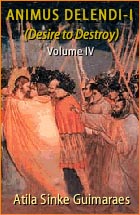 Volume IV |
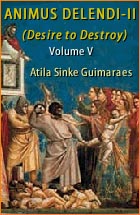 Volume V |
 Volume VI |
 Volume VII |
 Volume VIII |
 Volume IX |
 Volume X |
 Volume XI |
 Special Edition |


